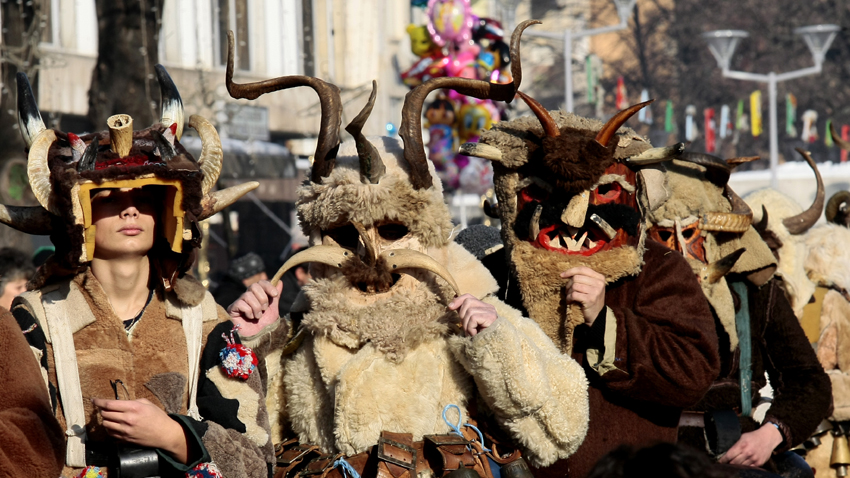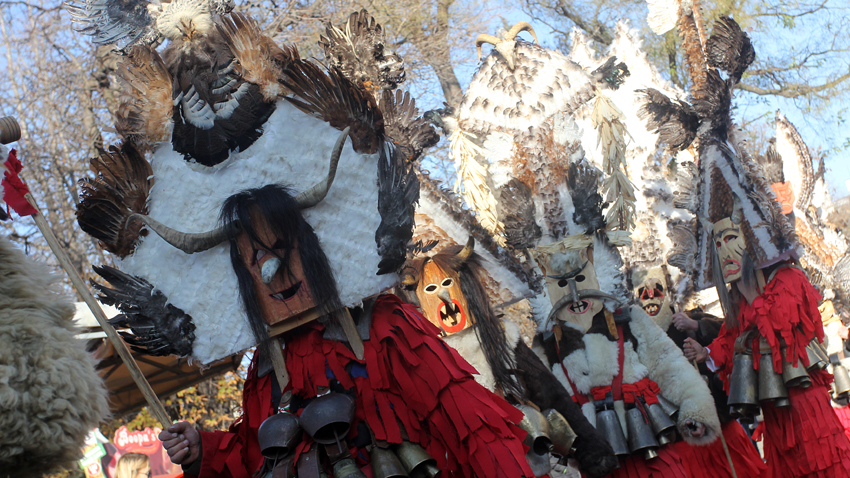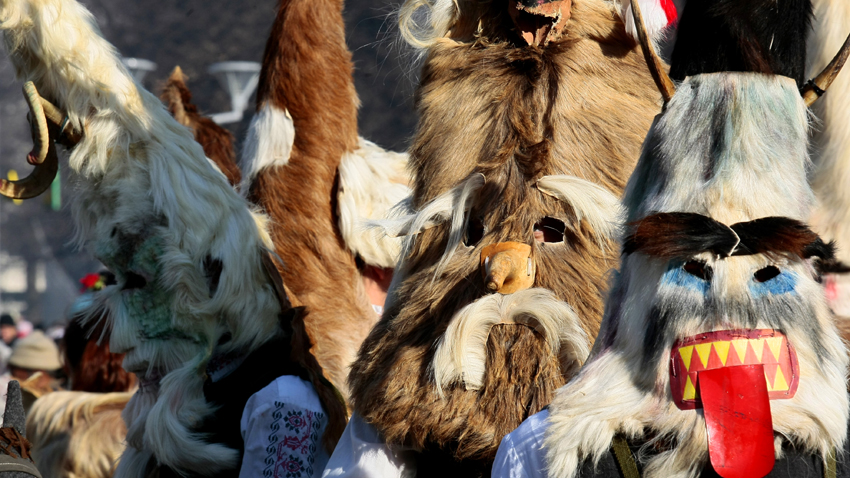Colorful, noisy and festive - this was the atmosphere in Pernik during the three days in which the small town southwest of Sofia turned into the masquerade capital of Bulgaria, the Balkans, and perhaps Europe. From 29 to 31 January, the town hosted the 25th edition of the International Festival of Masquerade Games "Surva 2016". It brought together a record number of participants - about 6,500 people from all parts of Bulgaria. This year the Surva festival celebrated its 50th anniversary. The first parade of mummer masks organized by the municipality of Pernik was held in early 1966.

Mummers from 110 groups from around the country marched along the streets of the town wearing fearsome masks made of leather and horns of domestic and wild animals. The numerous spectators admired the craftsmanship displayed in the Surva costumes made of feathers that rose to a height of several meters above the heads of participants. Yet most diverse in size and shape were mummers' bells. They are an essential attribute and symbol of the masquerade games during the Surva festival. According to folk beliefs, the farther the sound of cowbells is heard and the more frightening the masks, the farther the evil forces will escape from the world of men. Members of the mummers group "Golden Fleece" from the village of Chelopech said that the metal bells they carry on their belts usually weigh no less than 50 kg. They crafted the masks themselves and their preparation for the festival in Pernik began a year ago.

Folk groups from neighboring Balkan countries - Serbia, Romania, Greece and Macedonia arrived in Pernik especially for this large masquerade forum. The most exotic, as we understood, was the group from as far as Mali, as its members presented African dances and traditions.
Yet the festive atmosphere did not end here. The central square "Krakra" in Pernik was crowded with entrepreneurs who were selling their merchandise at colorful stalls. Everywhere there were souvenirs on sale in the form of miniature mummer masks, brass bells and Bulgarian folk embroidery on keepsakes.
The interest in the festival this year was even greater because of the fact that as of last December the "Surva" custom has been included in the list of UNESCO's intangible cultural heritage. This is the fourth Bulgarian festival that has become part of the treasury of the world organization. So far, the intangible heritage was presented by the Bistritsa Grannies, dancing on burning embers (known here as nestinarstvo) and the Chiprovtsi handmade carpets.

English version Rossitsa Petcova
Photos: BGNES
Clocks and bells will ring out in the center of Stara Zagora on Saturday, when the city will host the XXIV Masquerade Games Festival . The event will start with a traditional parade of participants. Attractive babugers, araps, old men and other..
Today marks the 88th anniversary of the birth of remarkable Bulgaria folk singer Nadka Karadzhova . Born on March 14, 1937 in the then Pazardzhik village of Trivoditsi (today - Plovdiv region), she is a descendant of an old musical family. At the age..
Every year, the chitalishte (community culture club) in the village of Kralevo not far from Targovishte, re-enacts Bulgarian traditions and rituals, organizing contests such as “Master lyutenitsa - maker” and “From granny’s dresser”. And for the..

+359 2 9336 661
